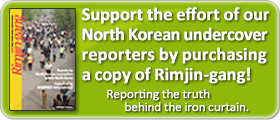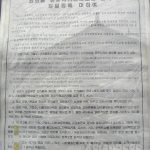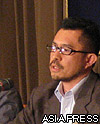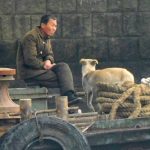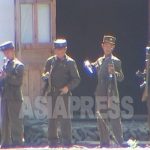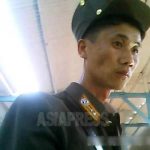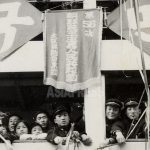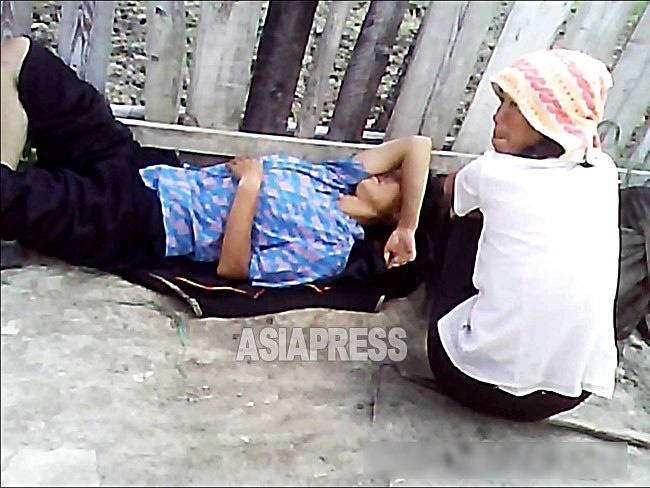
On June 15, at the Central Committee of the Workers' Party of Korea, Kim Jong-un acknowledged the worsening food situation by stating that "the people's food situation is strained" and reiterated his order to give top priority to agriculture, saying, "It is imperative to concentrate all national power on agriculture."
So, what is the actual situation of the agricultural industry this year? ASIAPRESS researched the current situation during the height of the farming season in several northern regions. Upon investigation, hunger appears to be spreading among the farmers, as they are left with dwindling supplies (Kang Ji-won).
◆Farmers are already predicting a poor harvest
North Korea is currently amid a "rural mobilization" campaign. Since mid-May, city dwellers from all over the country have been taken to cooperative farms to help farmers by sowing corn seeds, planting rice, and weeding.
Last year, the "rural mobilization" was scaled down due to the concern over the coronavirus spreading. However, this year, under the policy of prioritizing agriculture from the beginning of the year, "urban residents are taking turns to go to rural areas under the instruction of the authorities. They say that ‘those who can hold a spoon must go to rural areas’," said the reporting partner.
For this year's rural mobilization campaign, each enterprise or group was assigned a farm to work on, with residents visiting the farm two to three times a week. In addition to the "commuting" method, a new method has been introduced in which those who are stationed at the farms are selected to be in charge of the designated fields until harvest. The chronic shortage of labour on the farms was solved for the moment, giving a lift to the overburdened farm workers.
However, some cooperative farm leaders and residents are already pessimistic that agricultural production will worsen this year.
◆Serious Shortage of Farming Materials and Funds
The first serious problem is the shortage of farming materials. The reporting partners who conducted the research agreed that there was a complete lack of fertilizer, pesticides, herbicides, vinyl, fuel for vehicles, and parts for agricultural equipment.
North Korea's staple food, corn, is grown in nurseries called "nutrient complexes," and then planted in the fields. This system has not been working well since April, according to the report.
“There are many fields that have failed to sprout in the nurseries due to a lack of fertilizer. Instead, they have been sown directly into the field, but due to the severe acidification of the soil, growth is poor,” said a farmer living in Hoeryong.
“There are no herbicides coming from China, so we weed the nursery by hand, one by one," said a farmer living in Pochon County.
The authorities are not just sitting on their hands. They have prioritized the transportation of domestically-produced fertilizers and Chinese fertilizers by rail, even though they are in short supply. However, domestic chemical fertilizers have a terrible reputation as being “inferior to human waste.”
The second difficulty is the lack of funds.
This year, instead of having the farms pay for the meals of the personnel coming from the cities, it was decided that they would be paid for by the companies that send personnel to the mobilization. Since food can only be purchased at the market, each organization has formed a "profit-making group" to raise cash at their own local markets. Still, due to the massive slump in business caused by the coronavirus restrictions, they have not made enough cash.
Due to the lack of funds, the cooperative farms cannot purchase fuel to run their farming machines- not even the vehicles used to pick up farming materials supplied by the government. "The company has exempted workers from mobilizing if they pay 100 RMB, but people can't raise the money," said a farmer living in Hoeryong.
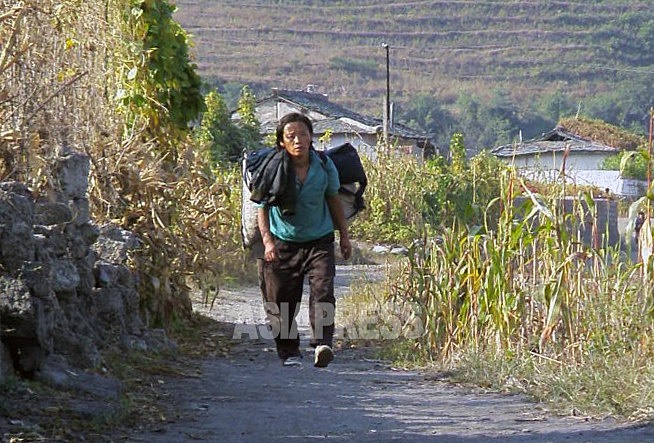
◆How can a starving farmer work?
The most severe problem is the impoverishment and hunger of the cooperative farmers. It is said that the number of "food insecure households" that have consumed all of the food distributed last year and have since run out of cash, has been increasing since May.
“The farm's work unit consists of about 12 people, but three or four of them are from 'food insecure households.’ In April, the local government provided them with 50 kilograms of potatoes but they had already eaten them up,” said an agricultural official living in Pochon County.
"Thirty percent of the farms are from 'food insecure households.' A farmer, who is a member of the Workers' Party, was ordered by the party organization to take charge of and help the starving food-insecure households- to bring them corn. However, the life of the party members is also tough, and they can only help those within a few kilometres of them," said a farmer living in Hoeryong.
"This year's agriculture is 'manchetta' (meaning ruined, no good)." This was the word heard on all the farms investigated.
On the other hand, the situation in the Hwanghae Provinces, the breadbasket, is not clear due to a lack of information. According to Chinese customs statistics, a large amount of fertilizer was imported from China in April. The fertilizer was likely sent by ship to the port of Nampo on the west coast, from where it may have been delivered to farms in the Hwanghae Provinces.
◆Information on China's Massive Food Aid
Information that a large amount of food aid from China will be delivered from June onward has begun to be reported by officials in various regions. On June 19, our reporting partner in North Hamkyung Province gave us the latest information: "I heard that in July, China's food aid would be urgently distributed to 'food insecure households in rural areas with the highest priority."
In June 2019, President Xi Jinping made his first visit to the country, and that the aid would mark the second anniversary of his visit. An intelligence official in the government responded, "Last year, we estimate that China provided about 500 thousand tons of food aid."
※ASIAPRESS contacts its reporting partners in North Korea through smuggled Chinese mobile phones.
- <Inside N. Korea> Why is hunger getting worse in June? “Malnutrition has made it impossible to go to work, and some have died from eating wild plants.” This is the worst in the Kim Jong-un era. (2021-06-15)
- <Inside N. Korea> “S. Korean agents are painting Chinese banknotes with coronavirus and sending them.” Kim Jong-un gives direct orders to clean up money transfer brokers. (2021-06-14 )
- <Breaking News N. Korea> A Mysterious 33% Surge in the Won Against the Chinese Yuan…Are the Authorities Manipulating N. Korea’s Currency? (2021-06-08 )
- <Inside N. Korea> Major Power Outages Continue Across Cities as Electricity Supply to Residents is Cut Off Drastically…Why? (2021-06-08 )
- <Interview with a North Korean Woman (1) > Why the COVID Situation is Causing a Surge in “Black-Market Abortions” (2021-05-31 )
Editor’s notes on North Korean reporters
ARCHIVE(pdf) >>
DPRK MAP >>
